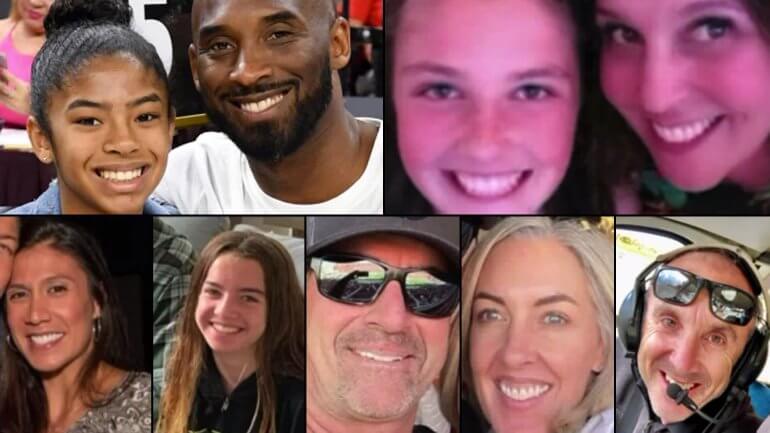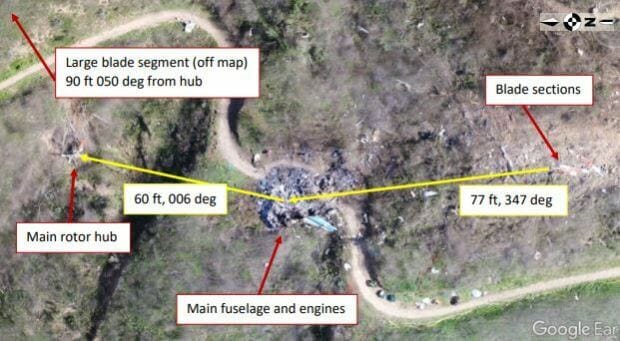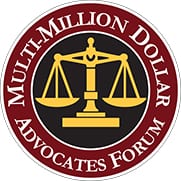The convenience of private air travel was praised by basketball legend Kobe Bryant, who previously told reporters that helicopters cut through traffic jams and allow him to attend his daughters’ school plays and keep his NBA training schedule.
How Did Kobe Bryant’s Helicopter Crash Happen?
On January 26, 2020, the NBA superstar, his daughter Gianna and seven others were killed when their Sikorsky S-76B private helicopter crashed into a hillside in Calabasas, California. The deadly crash, which occurred in foggy conditions, has prompted many to question helicopter safety.
The crash also renewed questions about the private helicopter charter industry’s and Federal Aviation Administration’s refusal to adopt several critical safety recommendations of the National Transportation Safety Board (NTSB).

Image Source: ktla.com
Experts are still investigating the Jan. 26 helicopter crash, but the NTSB issued an update on the investigation last Friday. In the report, the agency determined that the chopper’s engine appeared to be running up until the impact and that there was no sign of engine failure.
Liability in Kobe Bryant’s Helicopter Accident
The helicopter that killed Bryant and eight others was owned by Island Express Helicopters, a charter company certified to operate under visual flight rules. According to a former pilot for the company, the company was not permitted to carry passengers in foggy weather that limited visibility to the point that its pilot would need to use their cockpit gauges.
Kurt Deetz, a former pilot for Island Express Helicopters, told Forbes that although the pilot of the flight, Ara Zobayan, was licensed to fly by cockpit instruments, it was unlikely that he had a lot of experience in doing so “given the operating limitations” of the company. Deetz had flown Bryant for two years.

Image Source: mercurynews.com
On a morning when heavy fog and low clouds were reported on January 26, law enforcement agencies and helicopter tour companies in affected parts of the Los Angeles area were not flying their choppers for safety purposes.
Previous Helicopter Accident Lawsuits in the U.S.
Fact: Data compiled by the NTSB for The Washington Post indicates that helicopter crashes killed at least 428 people between 2009 and 2018.
In February 2018, a former Colorado flight nurse who suffered burns over 90% of his body was awarded a record $100 million settlement from the maker and operator of the Flight For Life helicopter. According to Reuters, the amount is believed to be the largest pre-trial settlement ever reached in individual personal injury civil claims in the U.S.
In December that year, the wife of an Army specialist killed in the 2017 Maryland helicopter accident sued Sikorsky Aircraft in Connecticut. Two other soldiers who suffered critical injuries also sued the company, alleging that the tail rotor system was defective, according to the Hartford Courant.
Who’s Liable in Helicopter Accidents?
Causes of helicopter crashes vary greatly, but many choppers crash due to:
- Pilot error
- Pilot’s failure to operate the aircraft within its limitations
- Operator’s lack of proper training and experience
- Failure to create a flight plan
- Poor weather conditions
- Lack of maintenance
- Running out of fuel
- Mechanical or electrical defects
- Faulty parts
- Design defects
- Improper loading
- Miscommunication from air traffic control
- Flying in an unsafe environment
Many helicopter accidents stem from multiple factors rather than a single factor. While a pilot may contribute to a crash, there are likely other underlying causes at play (e.g., adverse weather conditions, equipment failure, safety code violations, etc.).
In any helicopter crash, liable parties can include:
- The pilot
- The owner of the chopper
- The maker of the aircraft
- The company that manufactured its parts
- Maintenance supplier
- The federal government
What do you think? Is Bryant’s family likely to sue?










